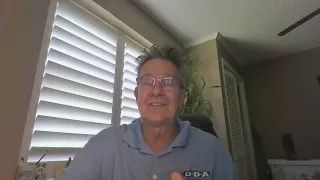Women disproportionately struggle to save for retirement, new data shows
While women make up 47% of the American workforce and control $10.9 trillion in household financial assets, competing responsibilities and disparities have made it disproportionately harder for women to save for retirement, according to a new report from Goldman Sachs Asset Management (GSAM).
In addition, the average lifetime income for women is 21% lower than it is for men, according to 2016 data from the Senate Joint Economic Committee, which is cited in the report.
“Part of this disparity is due to women on average having nine years’ less earned income, which affects their Social Security benefit,” the report states. “The impact of these factors are reflected in women’s retirement contributions, which on average are 30% less than men.”
Worth noting for reverse mortgage professionals is the fact that a longer life expectancy for women means retirement planning must be more aggressive to compensate. Savings for women need to last longer on average, which adds pressure to retirement financing.
While these challenges and disparities exist for women, there are also potential paths for better financial service options to be catered to women, the report states.
“The obstacles women face are opportunities for plan sponsors to offer solutions that meet them where they are on their retirement savings journey,” the report states. “Personalized education and advisory services from a solutions provider can help support the unique factors affecting women. Additionally, data-driven engagement, segmented by participant sub-populations such as gender, can further address specific hurdles.”
This type of engagement strategy increases awareness for women’s retirement issues among investors and can also provide women with additional resources and information to best plan their retirement strategies, the report notes.
Women’s retirement issues were also highlighted in a recent Transamerica study, which showed that women’s retirement savings were generally behind on average across generations.
Single women account for the strongest single demographic served by the reverse mortgage industry outside of couples, according to the Federal Housing Administration (FHA) Annual Report to Congress. Over one-third (35.23%) of reverse mortgage borrowers are single women.
However, industry advertising geared toward senior women has been limited historically in lieu of a more broad-based approach.
One Reverse Mortgage, a lender that is no longer active in the space, did briefly employ a woman as a reverse mortgage spokesperson, hiring Barbara Eden of I Dream of Jeannie to be the first female reverse mortgage industry spokesperson for a 2011 ad campaign.
Actor Robert Wagner, spokesman for Urban Financial (now Finance of America Reverse) in 2011, appeared in tandem with his daughter to emphasize the role adult children can play when their parents are considering a reverse mortgage, but she was not the primary spokesperson.
The reverse mortgage industry is reckoning with reduced volume and the consolidation or exit of major industry companies, and analysts have encouraged industry professionals to increase efforts to introduce new borrowers to the reverse mortgage product category. Based on this data, outreach focused on women’s unique retirement challenges may be one such option.
Have A Question?
Use the form below and we will give your our expert answers!
Reverse Mortgage Ask A Question
Start Your Loan
with DDA todayYour local Mortgage Broker
Mortgage Broker Largo See our Reviews
Looking for more details? Listen to our extended podcast!
Check out our other helpful videos to learn more about credit and residential mortgages.





